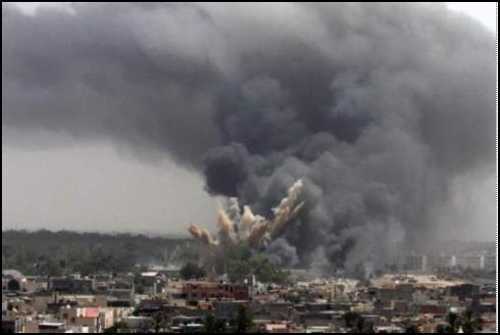The term “proxy war” has experienced a new popularity in stories on the Middle East. Various news sources began using the term to describe the conflict in Yemen immediately, as if on cue, after Saudi Arabia launched its bombing campaign against Houthi targets in Yemen on 25 March. “The Yemen Conflict Devolves into Proxy War,” The Wall Street Journal headlined the following day. “Who’s fighting whom in Yemen’s proxy war?” a blogger for Reuters asked on 27 March.
And on the same day the Journal pronounced Yemen a proxy war, NBC News declared that the entire Middle East was now engulfed in a proxy war between Iran and Saudi Arabia.
It is certainly time to discuss the problem of proxy war in the Middle East, because a series of such wars are the heart of the destabilisation and chaos engulfing the region. The problem with the recent stories featuring the term is that it is being used in a way that obscures some basic realities that some news media are apparently not comfortable acknowledging.
The real problem of proxy war must begin with the fact that the United States and its NATO allies opened the floodgates for regional proxy wars by the two major wars for regime change in Iraq and Libya. Those two profoundly destabilising wars provided obvious opportunities and motives for Sunni states across the Middle East to pursue their own sectarian and political power objectives through proxy war.

